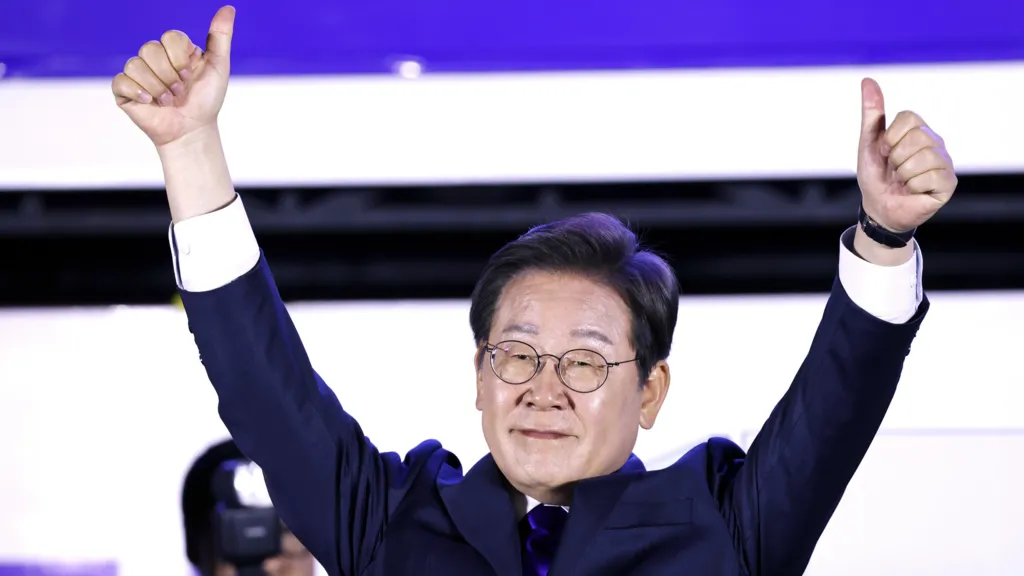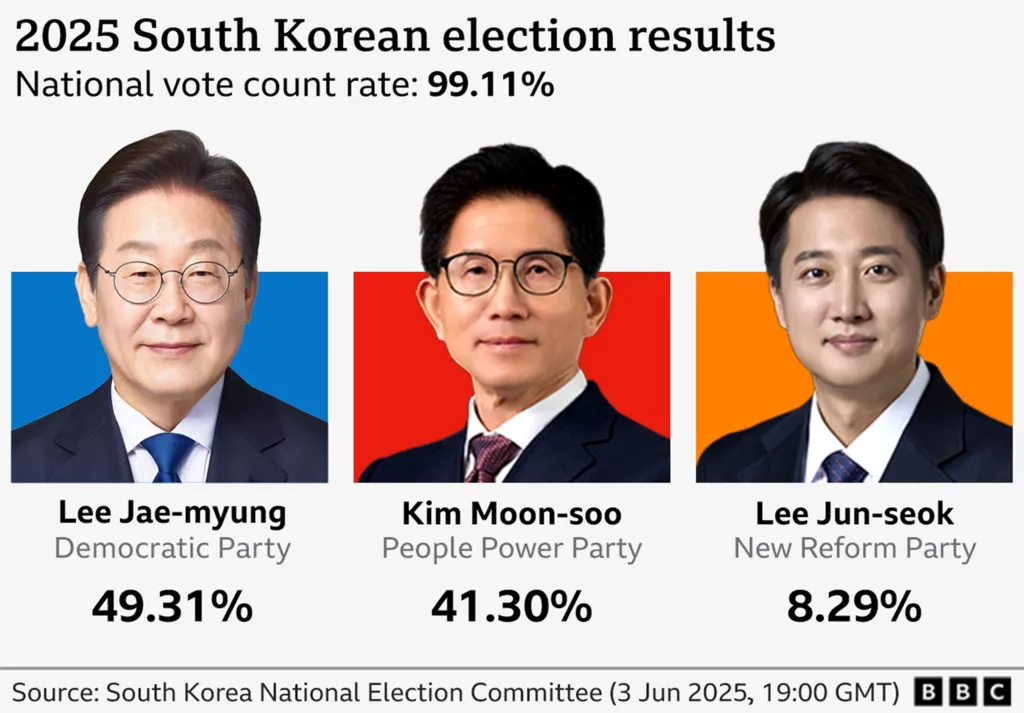In a dramatic reversal of political fortunes, South Korean opposition leader Lee Jae-myung has won the presidency, marking a stunning comeback and signaling a national rejection of the ruling People Power Party (PPP) after months of political turmoil and a failed martial law attempt by ousted president Yoon Suk Yeol.
Lee, 61, of the Democratic Party, clinched victory after polls showed a commanding lead over his main rival, PPP candidate Kim Moon-soo, a former cabinet member under Yoon. The ruling party conceded defeat early Wednesday morning, following projections showing Lee with a decisive advantage as more than 60% of votes were counted.
The election came just six months after Yoon’s extraordinary and short-lived bid to impose martial law — a move that triggered mass protests, his impeachment, and ongoing criminal charges for abuse of power. The fallout left the country deeply divided and politically shaken, with the PPP in disarray and three acting presidents cycling through the Blue House in less than a year.
Lee, who narrowly lost the 2022 presidential race to Yoon, pledged in his victory remarks to prioritize “recovering democracy” and healing national divisions. Though a polarizing figure himself, dogged by past corruption probes and known for his abrasive style, Lee’s win is seen less as a resounding endorsement of his platform and more as a public rejection of authoritarian overreach.
Analysts say voters were driven by a desire to safeguard democratic institutions, even if some remain skeptical of Lee’s past. “This was a vote to defend the republic,” said Park Sung-min, president of Min Consulting. “The PPP was seen as complicit in, or silent on, martial law. That sealed their fate.”
Yet Lee’s challenges begin immediately. He enters office under the shadow of an unresolved trial for alleged election law violations. While the law shields sitting presidents from prosecution except in cases of insurrection or treason, the legal uncertainty hangs over his administration’s legitimacy.
Domestically, Lee faces the daunting task of rebuilding trust in a political system shaken by years of polarization. He must work with a fractured PPP in parliament, and balance calls for accountability with a pledge for national unity. The lingering influence of Yoon’s loyal base — composed largely of young male voters and older conservatives — adds a volatile edge to the political landscape.
Internationally, Lee must quickly mend strained ties with the U.S., where President Donald Trump’s return to office has led to renewed tariffs on South Korean exports. A new trade deal with Washington is reportedly high on Lee’s agenda, along with reaffirming the U.S.-South Korea security alliance amid rising tensions with North Korea and a fragile global economy.

Another emerging political force — Lee Jun-seok, leader of the new Reform Party — has captivated younger voters with anti-feminist rhetoric and drew nearly 8% of the vote before exiting the race on election night. His rise suggests that the ideological divisions Yoon amplified may persist beyond his political career.
Despite the chaotic backdrop, voter turnout surged to 79.4%, the highest since 1997, as citizens sought to influence the country’s direction at a pivotal moment. Lee has promised to meet the challenge head-on.
“I will do my utmost to fulfil the great responsibility and mission entrusted to me,” he told reporters early Wednesday. “I will not disappoint the expectations of our people.”
South Korea’s path forward remains uncertain — but for now, voters have chosen a new chapter, one shaped by democratic resilience and the hope of stability after a turbulent year.

